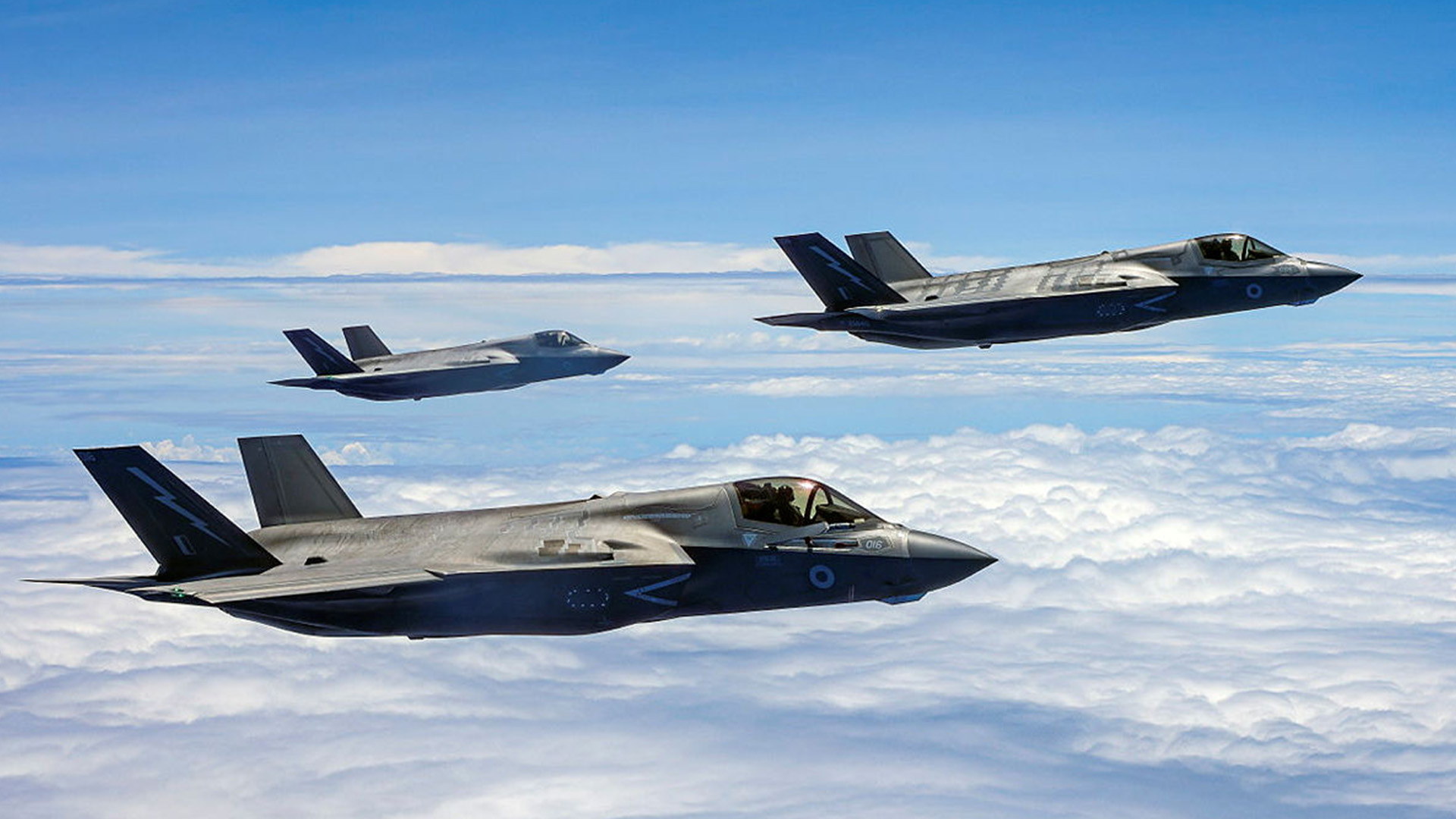
UK's early F-35 advantage fading as allies outpace on fleet size and flying hours, say experts

The UK's ability to sustain and influence the F-35 fighter jet programme is being undermined by limited aircraft numbers, low flying rates and a lack of engineering capacity, defence experts have told peers.
Speaking to the House of Lords International Relations and Defence Committee, Dr Sophy Antrobus, co-director of the Freeman Air and Space Institute at King's College London, said the UK's early leverage in the F-35 programme has been diluted as more nations join.
She said: "The level one partnership was for the systems development and demonstration part of the programme. So that is no longer in existence. We're equal partners now in the production and in-service phases."
- Lightning strikes out, so Typhoon sweeps in as Turkey agrees to buy British jets instead
- What alternatives does the UK have if it has to abandon the US-designed F-35?
- Lightning Force: F-35B fighter jets showcase the future of multi-domain warfare
Dr Antrobus, who spent 20 years serving in the RAF as an air operations officer, said that even if there is a "continual dilution" of influence, "the fact that we were in there at the beginning does still have a lasting effect".
Speaking about the Royal Aeronautical Society, she said that early investment "still contributes to our standing" because "15% of F-35 aircraft are produced in this country," with around "£11 billion worth of spending, £22 billion comes back in terms of industrial benefits and investment".
She told MPs that keeping the programme accountable was a challenge even for Washington.
"In 2024, none of the aircraft were delivered on time. The average delay was 238 days. So the US government has difficulty holding the programme to account. The UK obviously is going to be no more influential than them in that case."
Dr Antrobus said Britain's 38 personnel embedded in the Joint Program Office, the US organisation responsible for managing and sustaining the F-35 fleet, remain the UK's most effective route to exert influence.
But she warned that decoupling British weapons integration from the US programme risked reducing capability: "There's not a lot of point in having an F-35 that doesn't have a stand-off weapon... you can't decouple weapons from an aircraft. That's just mad, frankly."
Dr Justin Bronk of the defence and security think tank Royal United Services Institute said the UK's "participation in a lot of practical areas has fallen significantly short of where our initial programme commitments were", as other partners expand their fleets and fly them more.
He told the committee: "Australia is increasingly significantly competing with the UK for kind of most-preferred-partner spot, if you like, because not only do they have 72 aircraft at the moment, so significantly more than us, they also fly them nearly twice as much."
The UK currently has around 40, he told the committee, with 48 purchased and a further intention to buy another 27 at least.
Dr Bronk said that while the UK retains privileged access through the Australian-Canadian-UK Reprogramming Lab, Britain's domestic shortfalls are limiting output.
"We have consistently struggled to fly them as much as we intended to… output and ambition has consistently outstripped resourcing."
He explained that engineering shortages and pilot training gaps have compounded the problem.
"There is a significant deficit in pilot training capacity," he said, warning that without greater support the UK risks operating a "wasting force".
Both witnesses told peers the UK must balance ambition with resources if it is to retain credible airpower within the multinational F-35 programme.









